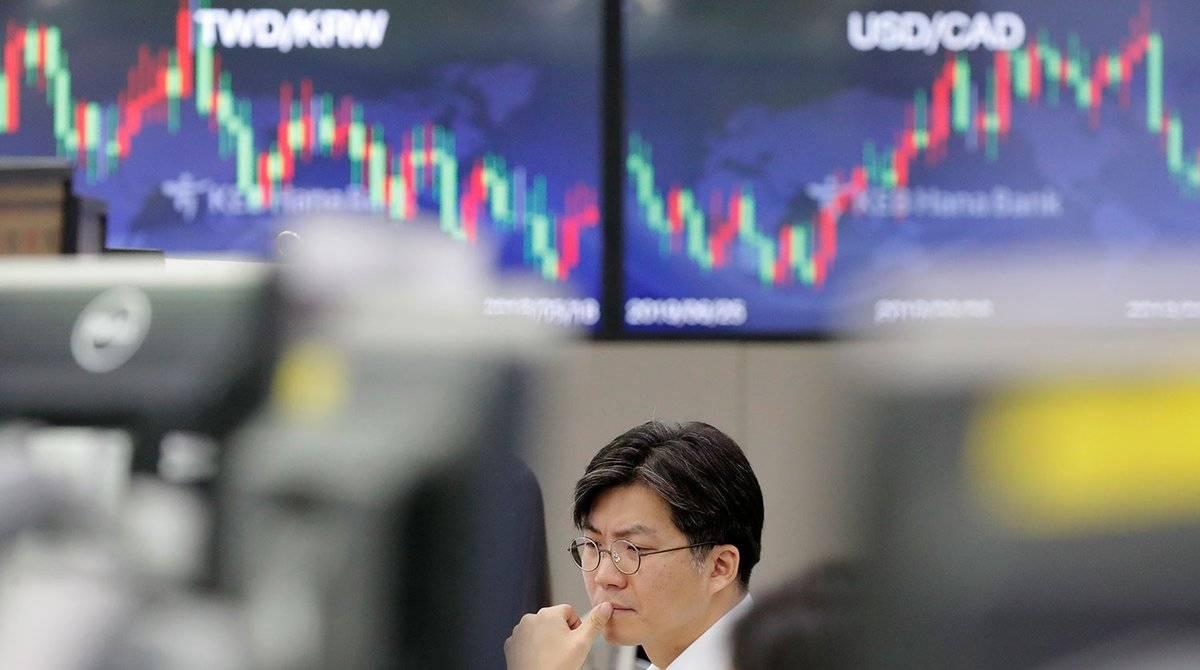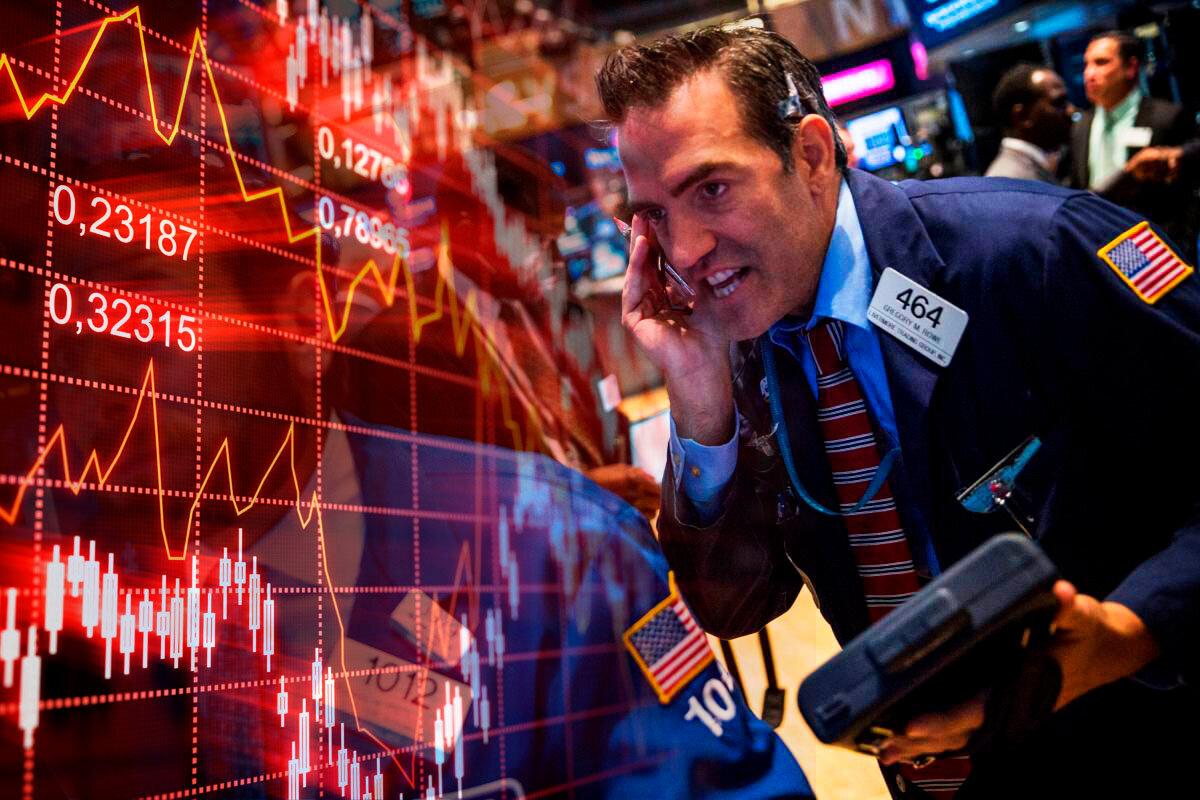Asian and US markets in flux What’s behind financial fever?
As August commenced, financiers and stock market participants were confronted with alarming news of substantial declines in stock indices and the shares of high-tech companies. By August 5, Japan's Nikkei 225 index had dropped nearly 14 per cent, while the Nifty and Sensex indices fell by 3 per cent. This situation echoed the events of Black Monday in October 1987, when the Nikkei plummeted by 14.9 per cent. This drop is notably steeper than those observed during the 2008 global financial crisis or the aftermath of the nuclear disasters in Japan following the March 2011 earthquake.
According to CNBC, Mitsubishi, Mitsui and Co., Sumitomo, and Marubeni have each lost over 14 per cent of their market capitalization, with Mitsui’s shares plummeting nearly 20 per cent. South Korean stock markets also saw a sharp decline, with the KOSPI index falling by more than 8 per cent. This drop represents the most significant decline since 2008 and has negatively impacted the stock prices of South Korean conglomerates, including Samsung Electronics and Hyundai Motor.
RISI expert Roman Lobov notes that the current situation has intensified concerns within South Korean society about a potential repeat of the 1997-1999 financial and economic crisis. This has led to increased scrutiny from local analysts on structural issues affecting South Korea's economy, such as rising household debt and escalating real estate prices.

The crisis soon spread to the US market, where high-tech companies began to lose their market value. Stock prices for Nvidia dropped by 17 per cent, Apple by 10 per cent, Microsoft by 9 per cent, Alphabet by 9.6 per cent, Amazon by 9.3 per cent, Meta by 10 per cent, and Tesla by 10 per cent, among others.
Experts point to several factors contributing to the current crisis. Firstly, there are growing concerns that the US economy may be heading towards a recession. Last month, the US created 1.14 million jobs, falling short of the expected 1.75 million. The unemployment rate in the United States has risen to 4.3 per cent, the highest level since October 2021.
As Kallum Pickering, chief economist at the prominent British investment bank Peel Hunt, observed: “The US is the world’s most systemically significant economy. Unexpected setbacks in the US can have far-reaching consequences for open economies and may influence the upcoming decisions of global central banks.”
Additionally, the ongoing conflict between Israel and Iran is exacerbating the situation. For several days, countries in the region have been bracing for the possibility of a full-scale war between these two regional powers, adding further instability to the global economic landscape.
Another mistake contributing to the current crisis appears to be the Bank of Japan's decision to raise interest rates to 0.25 per cent. As a result, the Japanese yen appreciated by 2 per cent against the US dollar. According to CNN, this has negatively impacted exporters and companies with overseas earnings. Oksana Kholodenko, expert at BCS World of Investments, stated: “Last week, the Bank of Japan increased its key interest rate, making the yen more attractive to speculators but weakening the position of Japanese companies in the market.”
The issue is that Japanese corporations earn revenue in US dollars but incur expenses in yen. The strengthening of the yen has diminished the competitiveness of Japanese goods, leading investors to withdraw funds from stocks and invest in government bonds, which in turn triggered a market collapse.
By August 10, the situation on the markets had somewhat stabilized. The Japanese Nikkei 225 index closed up 10.2 per cent, a record daily gain, after investors began purchasing stocks that had previously fallen nearly 14 per cent. The South Korean KOSPI index rose by about 3 per cent. Fawad Razaqzada, an analyst at City Index, suggested that “the crisis may not be over yet, although the situation could stabilize within a week.”
Japanese authorities are also taking steps to reassure investors. The day after the historic market plunge, leaders from the Financial Services Agency, the Bank of Japan, and the Ministry of Finance of Japan held a trilateral meeting.
How serious could the current financial upheavals be?
Economist Anton Tabakh believes that the situation reflects typical market panic, which is unlikely to have long-term consequences.
“This appears to be a temporary market disruption, similar to what we often see. Traders in Japan reacted to US labor market statistics by deciding to sell off urgently. Investors, who have become unaccustomed to such ‘sales,’ failed to set stop-loss orders, leading to widespread panic. While the statistics were indeed underwhelming, it is important to understand this within context. An increase in unemployment from below 4 per cent to 4.3 per cent over six months (as reported in the US data) with interest rates at their highest in 20 years does not signify a recession but rather a slowdown in growth to 2.5 per cent annually, similar to inflation. Although there is certainly a risk of recession, the current situation is more about a shift from a previously good outlook to one that appears worse.”

On the other hand, analysts at Goldman Sachs believe that investors are increasingly interpreting "bad news as good news." Renowned economist and Nobel laureate Paul Krugman argues that "mistakes can snatch defeat from the jaws of victory." He suggests that while there are no objective grounds for a crisis at present, significant errors could lead to serious problems.
One such potential error is the investment boom in artificial intelligence, which bears similarities to the mortgage investment surge in the early 2000s that led to the financial crisis.
As Ivan Grachev, chief researcher of the Central Economic and Mathematical Institute of the Russian Academy of Sciences, noted: “The largest fluctuations in US stock prices have been observed among five tech giants heavily investing in AI: Alphabet, Amazon, Apple, Meta, and Microsoft. While this factor is important, it alone is not sufficient to trigger a global economic crisis.”
Notably, following the events of August 5, Warren Buffett, one of the world's most successful investors, and CEO of Berkshire Hathaway, began urgently pulling his investments from Apple and other companies involved in AI.
Economists are also concerned about the outcome of the US presidential election. While Donald Trump’s financial and economic policies do not seem to raise significant concerns among investors, Kamala Harris is viewed as a potential "dark horse."
Most observers and market analysts agree that the situation will become clearer by autumn, when updated data on the US economy and the results of the US presidential election are available. If a serious financial crisis does emerge, it is likely to have long-lasting effects, as it would be followed by successive economic, political, and social upheavals.
The views and opinions expressed by guest columnists in their op-eds may differ from and do not necessarily reflect the views of the editorial staff.








